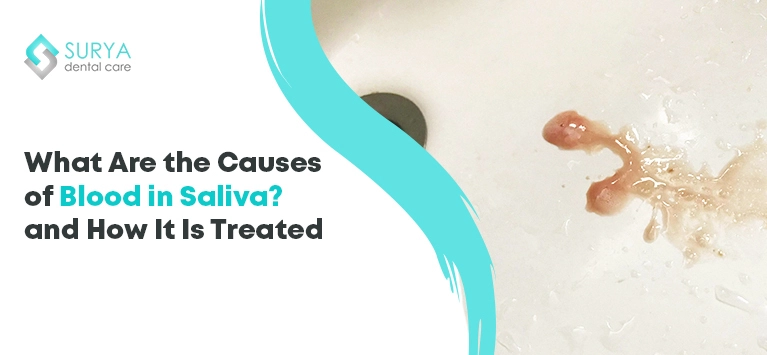Blood in spit-up, also known as blood in saliva, can be a concerning symptom that may indicate underlying health issues. This occurrence can range from mild red streaks to more significant amounts of blood. While common causes include oral injuries and gum diseases, it is crucial to rule out more serious conditions such as infections, respiratory issues, or gastrointestinal problems.
Coughing up blood is a condition you need to consult with a healthcare provider. Spitting up blood with saliva is not a serious issue. If it happens continuously, you must consult healthcare providers.
According to medical data, around 20% of infants from seven months to five years old experience blood in saliva as babies are born with low levels of vitamin K. Blood clotting requires the presence of vitamin K. Vitamin K insufficiency is the primary cause of bleeding. In adults, this symptom could indicate more severe conditions like respiratory infections or lung cancer.
Causes for blood in saliva
Oral Injuries
One of the common causes of blood in saliva is oral injuries. Accidentally biting your tongue or cheek while chewing food can lead to bleeding, resulting in spitting up blood with saliva. Similarly, a sharp object or trauma to the mouth can cause injuries that result in bleeding.
Gum Disease
Periodontal conditions like gingivitis or periodontitis can lead to bleeding gums and spitting up blood with saliva when brushing your teeth or flossing.
Infections
While oral injuries and gum diseases are frequently observed causes of blood spit-up, it is crucial not to dismiss the possibility of more serious underlying conditions that may require medical attention.
1. Bronchitis: An inflammation of the bronchial passages, usually brought on by bacteria or viruses, which causes breathing difficulties, coughing, and wheezing.
2. Pneumonia: Lung infection, usually caused by a virus or bacteria, that results in fever, coughing, inflammation, and breathing difficulties.
3. Tuberculosis: A bacterial infection that mostly affects the lungs, causing coughing, chest pain, exhaustion, and weight loss.
4. Severe throat infection: Usually caused by a bacterial or viral infection, this illness results in pain, swollen glands, difficulty swallowing, and occasionally fever and coughing.
This can result in coughing up blood-tinged saliva. These infections can damage the respiratory tract, leading to small bleeding.
Respiratory issues
Respiratory issues like pulmonary embolism – a condition where a clot obstructs blood vessels in the lungs – can manifest with symptoms like coughing up bloody saliva. Additionally, lung cancer and other tumors within the respiratory system have been known to cause bloody sputum as well.
gastrointestinal problems
These problems should not be overlooked as possible causes of spitting blood without coughing. Conditions such as stomach ulcers, esophageal varices – enlarged veins within the esophagus – and gastroesophageal reflux disease (GERD) are known culprits for causing blood in saliva when spitting.
When to consult your Healthcare professional?
Suppose you experience any persistent coughing up of blood or notice blood in your spit without any associated cough. In that case, seeking essential medical attention for a proper diagnosis and appropriate treatment is time.
Remember to contact the dentist for oral injuries and gum diseases, both major and common causes of blood in saliva.
You can do the following to avoid blood in spit-up
- Drink plenty of fluids, such as water and clear broths, to help thin mucus and promote healing.
- Avoid spicy and acidic foods that can further irritate the throat and stomach.
- Give your vocal cords a break by limiting talking or whispering.
- Use saline nasal sprays or rinses. These can help keep nasal passages moist and reduce irritation.
- Mix half a teaspoon of salt in a cup of warm water, then gargle to soothe the throat and reduce inflammation.
- Elevate your head while sleeping. Propping yourself up with pillows can prevent acid reflux or postnasal drip, which may contribute to blood spitting up.
- Avoid smoking or exposure to secondhand smoke. Smoking can aggravate the throat and lungs, which will cause blood-tinged sputum.
- Keep your house Clean. It is easy to breathe in dust, which could worsen lung conditions such as COPD(Chronic obstructive pulmonary disease), asthma, or lung infections.
Takeaway
When coughing up blood or spitting up blood can be an alarming and unsettling experience. In many cases, blood in saliva is caused by common issues such as oral injuries or gum diseases that will be solved quickly.
If you notice blood in your saliva persistently, it is recommended to consult with a healthcare professional for proper diagnosis and treatment options tailored to your specific situation.



